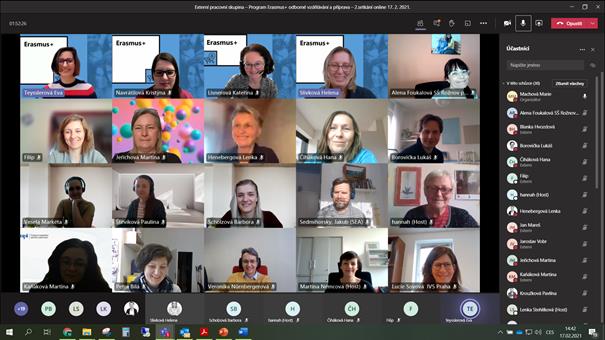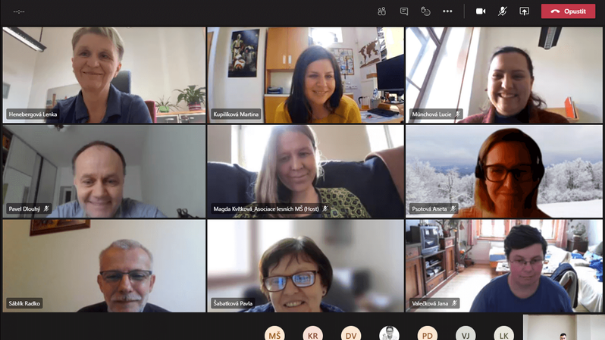External Working Groups Met to Discuss New Erasmus+ Methodologies
Minimizing barriers to the new Erasmus+ programme was the topic of discussion.
The external working group consisting of experts in vocational education, school education and informal education of young people, aims to produce a clear and comprehensible methodology for the project implementors in the new programme period of Erasmus+ (2021-2027). DZS representatives have been working on a manual with representatives from the Czech Ministry of Education, Youth and Sports (MŠMT) since last year and they are hoping it will provide understandable instructions on how to apply the programme rules in the Czech Republic, when considering Czech legislation.

Lenka Henebergová, Head of School, Vocational Education and Youth Division, met with colleagues from organizations in the vocational education field and introduced two new methodologies that are currently being prepared and that aim to minimalize administrative, legislative and other barriers in the new Erasmus+ programme period. Easier project administration for project coordinators is one of the priorities of the new Erasmus+.
“Apart from other news such as incorporating a broader spectrum of organisations into the programme and making it more accessible to participants with limited options, making project administration easier is an important priority of the new Erasmus+ programme. These meetings enable us to consider important contributions from representatives of organisations in vocational education and training,” says Lenka Henebergová.

A group meetings of school education representatives, as well as a meeting of informal youth education experts also took place this week.
The school education group discussion centred around the topics of supporting international activities in school during the new programme period, making information about new priorities and activities accessible to the broadest possible spectrum of schools, as well as pupil mobilities. Pupil mobility raises the question of recognition of learning results and ensuring the safety of the participants, considering their age. Group participants, DZS representatives and external experts all agreed that support from the school establishment authorities is crucial, and clear instructions on international project administration is also needed. The new DZS methodologies should help in these regards.
Informal youth education working group debated experiences with information dissemination and involvement of young people in European opportunities. An intense discussion was also held over gradual digitalisation and the offer of online activities. It seems to be increasingly difficult, yet not impossible, to motivate schools to get involved in activities beyond their education plan. According to group participants, the key is not just to time the activities wisely and connect them to subjects taught in the school, but also to approach young people with topics they are interested in, and that reflect their needs and motivation. Unified and systematic approach that will connect schools, non-profit organisations, and humanitarian organisations as well as cities representatives, in coordinating solidarity volunteer activities, could have a significant social impact and support, among others, young people with limited opportunities by tutoring them right where they live. The new methodologies being prepared by DZS promise to lighten the administration burden for project coordinators and therefore offer more opportunities to all young people groups.
During March, another meeting to discuss the new methodologies will take place, this time with MŠMT representatives.